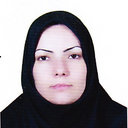Beneficial effects of Thymus vulgaris extract in experimental autoimmune encephalomyelitis: Clinical, histological and cytokine alterations.
Słowa kluczowe
Abstrakcyjny
The imbalance between pro and anti-inflammatory cytokines plays an important role in the pathogenesis of multiple sclerosis (MS) and its animal model, experimental autoimmune encephalomyelitis (EAE). Thymus vulgaris (thyme) as a traditional medicinal plant has been reported to exert antimicrobial, antioxidant, and anti-inflammatory effects. Therefore, this study evaluated the modulatory effects of Thymus vulgaris on the clinical symptoms, histopathological scores, and the production of some anti-inflammatory (TGF-β, IL-4, and IL-10) and pro-inflammatory (IFN-γ, IL-6 and IL-17) cytokines in EAE model. EAE was induced by MOG35-55 peptide and mice were treated intra-peritoneally (i.p) with phosphate buffered saline (PBS) in the control group or thyme extract (50 or 100 mg/kg of body weight, every other day) in thyme-treated EAE groups, from day 0 to +21 of post MOG immunization. Mice were sacrificed at day 22, and splenocytes were isolated and re-stimulated in vitro with MOG in order to measure the cytokine production and proliferation of re-stimulated cells by enzyme linked immunosorbent assay (ELISA) method and WST-1 reagent, respectively. The clinical symptoms and histopathological scores of the CNS were lower in thyme-treated than EAE control group. Furthermore, the production of IFN-γ and IL-6 by splenocytes was lower in thyme-treated EAE than in the control group. The production of IL-10 and TGF-β increased in mice treated with thyme extract compared to the control group. In this study, we showed for the first time that the immunomodulatory effects of Thymus vulgaris in EAE model. Thus, the possible therapeutic potential of thyme for treatment of MS could be considered in future research.



